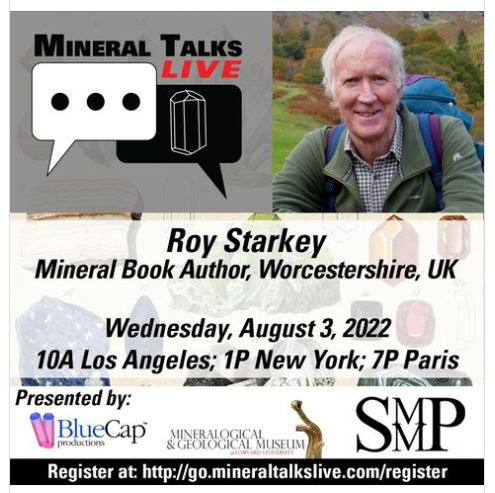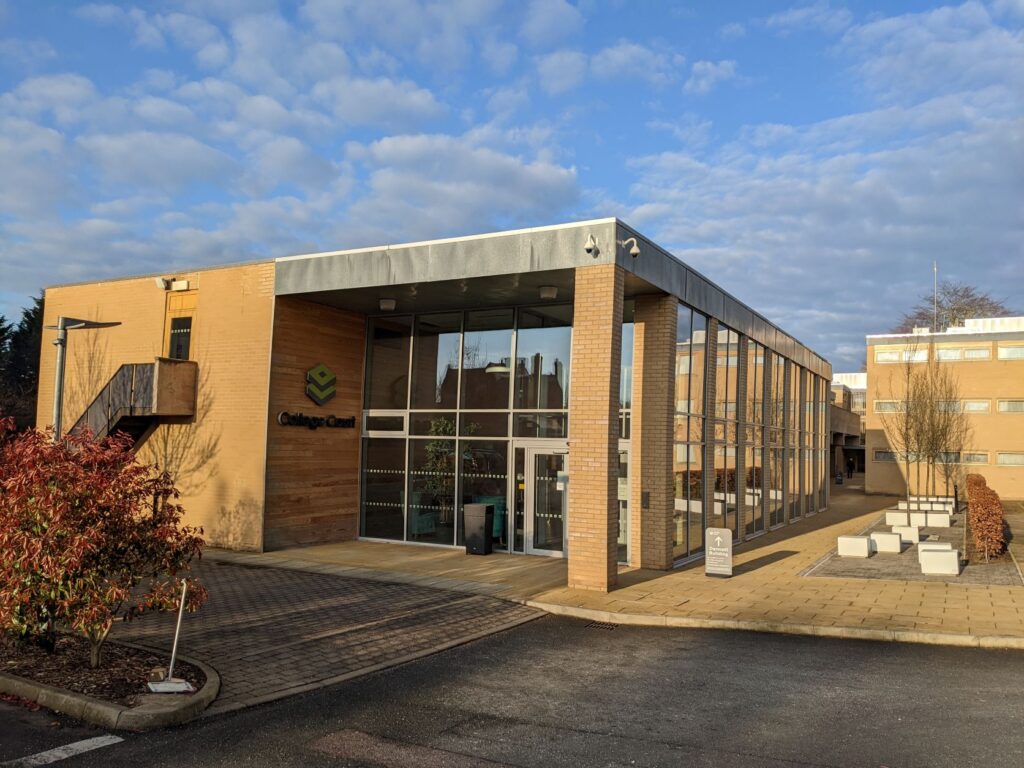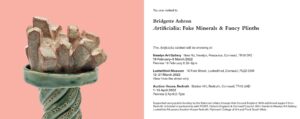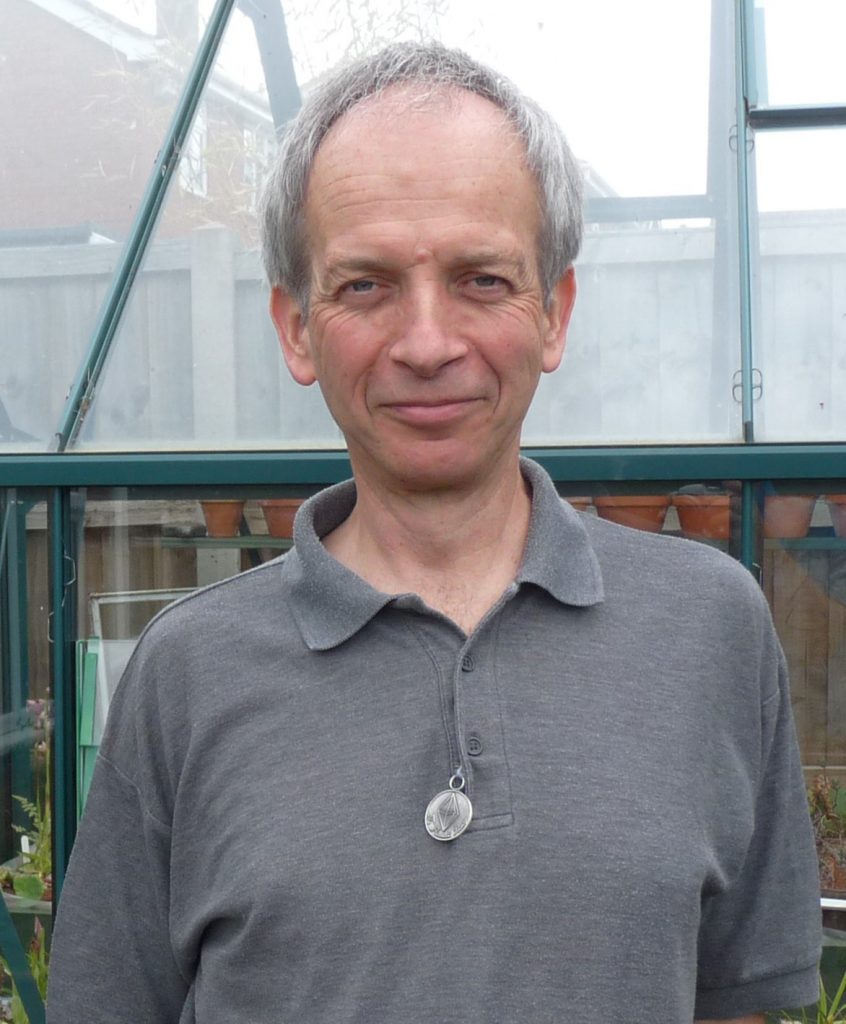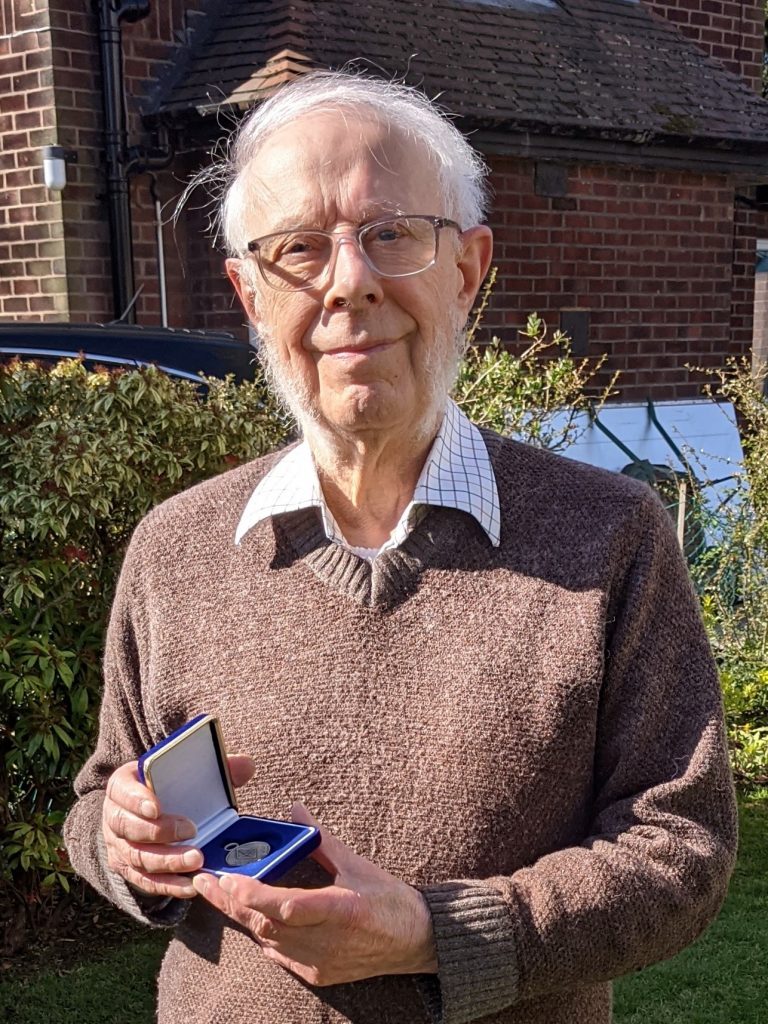Members may be interested to know that former Society Hon. President Roy Starkey will be Bryan Swoboda’s guest on next week’s episode of Mineral Talks Live at 18:00 hrs BST, on Wednesday 3 August. If you are interested in watching the programme please register in advance using the link in the advert.
Geology & Natural History Information Boards at Clevedon
The Society have been pleased to help fund and to provide technical support enabling information boards to be erected on Clevedon sea front which highlight the unique local geology. Clevedon Pier and Heritage Trust has just issued the following press release:
Clevedon Pier and Heritage Trust are very pleased to announce the installation of three public Information Boards on Wildlife, Geology and Minerals. Each Board is supported by a more detailed account of the subject on the Piers web site which can be accessed directly by a QR code on each Board. The Boards highlight the rich landscape, geology and coastal ecology which can be viewed from the Pier and along the beach, including the Site of Special Scientific Interest (SSSI) adjacent to the Pier’s toll house.
The Boards were generously funded by the Architectural Heritage Fund, the Geologists Association and the Russell Society and were supported by inputs from Roy Starkey and David Green (The Russell Society), Jonathan Larwood (Natural England and the Geologists’ Association’s Curry Fund) and Mark Ward (Somerset Wildlife Trust). The Geology Board features artwork by Bob Nichols. The Mineral Board was manufactured and designed by Querceus. The Wildlife and Geology Boards were designed by Emily Moran, featuring her original artwork, and manufactured by CE Signs Clevedon. North Somerset Council supported the project and installed the boards.
Further information can be found here.
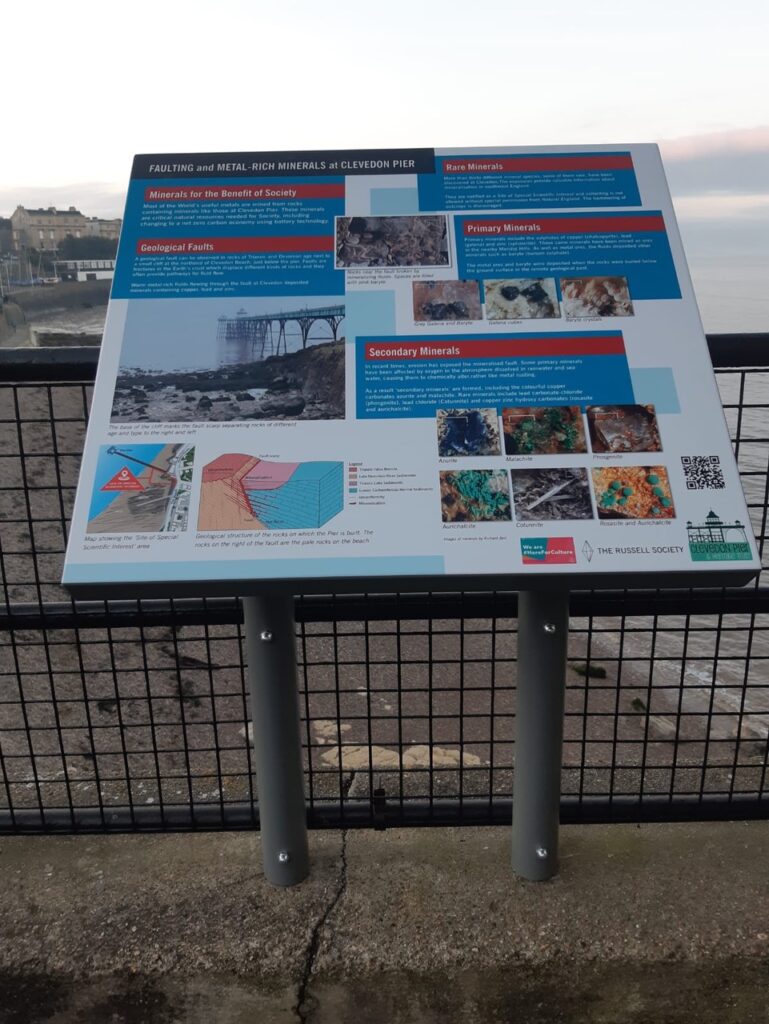
Inspired by the geology information board local author Peter Gibbs has written the following poem:
Really, Really Old Clevedon
A long, long, long, long time ago
Before we all were here
You would have found our Clevedon
In Southern Hemisphere
But not as we would know it now
No bouncing kangaroos
No surfers out on Bondi Beach
Not somewhere you would choose
Although the sea was warmer then
An ocean tropical
Forming Mendip limestone
Which we see now so tall
Then continents collided
With an almighty crash
I’m sure from many miles away
You would have heard a splash
Mountains formed, then wore away
The climate took its toll
Our place it headed northwards
Towards another pole
The water turned all salty
Our ocean now a lake
Where dinosaurs on holiday
Could take a welcome break
Two-twenty million years ago
Our beaches they enjoyed
Before they were extinguished
By mighty asteroid
Devonian rocks beside the pier
They have a tale to tell
Our time is oh so fleeting
So we must use it well.
Worrying News from the Royal Cornwall Museum
The Society has received the following email from the Directors of the Royal Cornwall Museum in Truro to say that the Museum’s major source of funding is to be cut. Many mineralogists will have visited the Museum to see its superb collection of Cornish mineral specimens, including those of the Philip Rashleigh collection.
Hello,
I am sorry to say we are having to write to share some devastating news with you. We were informed last week that Cornwall Council has cut all its funding to the museum.
This decision will directly lead to the imminent closure of Royal Cornwall Museum and the Courtney Library.
We are still in the process of understanding why, and the decision is even more disappointing considering the great successes we have had over the past two years. You can read more about our recent work here.
We need you to take action and voice your support now more than ever, and we want to make it as easy as possible for you to help out. We have drafted an email/letter template you can download here for you to send to your local councillor and/or the MP for Truro and Falmouth, Cherilyn Mackrory You will need to replace anything in square brackets with your own details. If you are unsure who/where to send it to, you can find out who your local councillor is and how to contact them here – https://www.cornwall.gov.uk/my-area/
You can also help out if you use social media by posting messages of support, making sure you copy in Cornwall Council and the museum by using the following tags:
Facebook: @CornwallCouncil @RoyalCornwallMuseum
Twitter: @CornwallCouncil @Cornwall_Museum
Instagram: @CornwallCouncil @Cornwall_Museum
This should hopefully only take 10 minutes of your time but it could make a huge difference so we would really appreciate if you could do this for the future of the museum.
Best wishes,
Bryony and Jonathan
Bryony Robins, Artistic Director
Jonathan Morton, Executive Director
Monthly Zoom Talks
Our last Wednesday talk this season will be on 18 May when Roy Starkey will give us a look at the research behind his recently published book Making it Mine – Sir Arthur Russell and his Mineral Collection.
A new programme will start in September.
50th Anniversary ASM photos
Some 50 members gathered together at College Court in Leicester for the first ASM weekend we have been able to hold “in person” for 3 years. There was a real sense of occasion, particularly as the Society was also celebrating its 50th Anniversary. Guest of honour was Sir Arthur’s youngest son, Christopher Russell and additionally we had members attending who had been present at the first AGM.
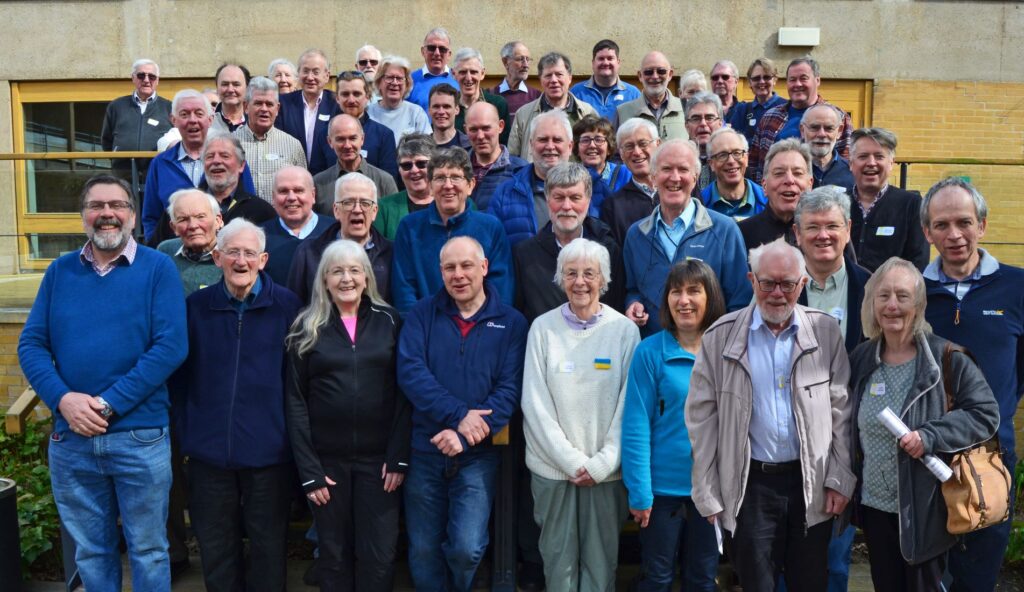
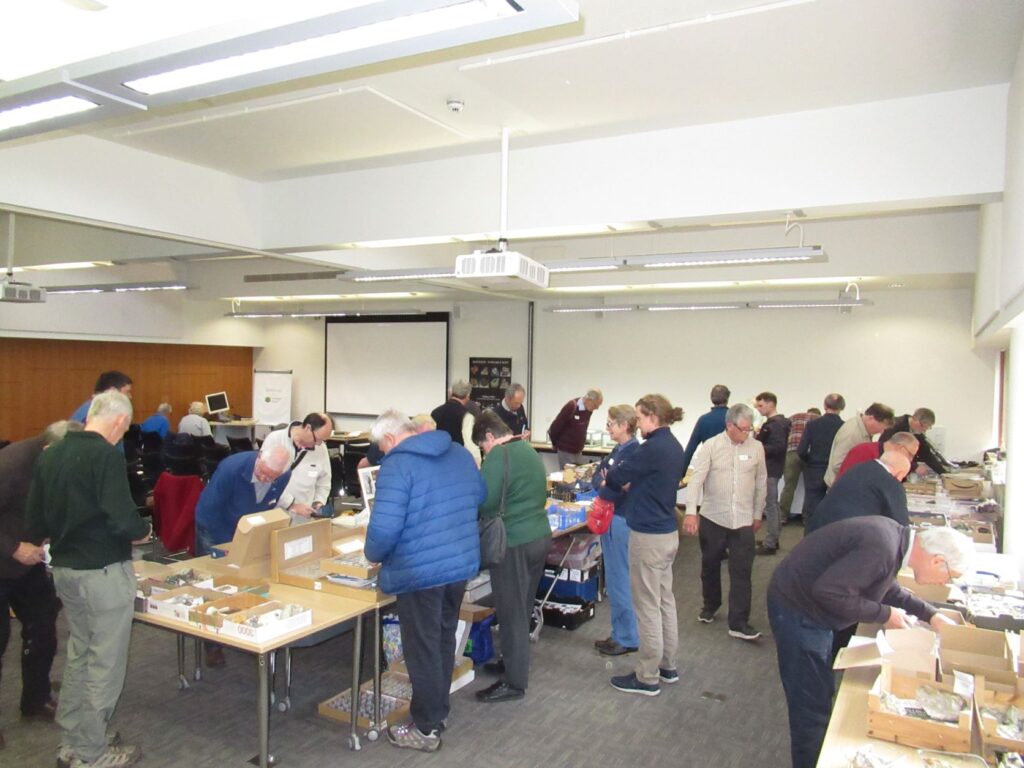
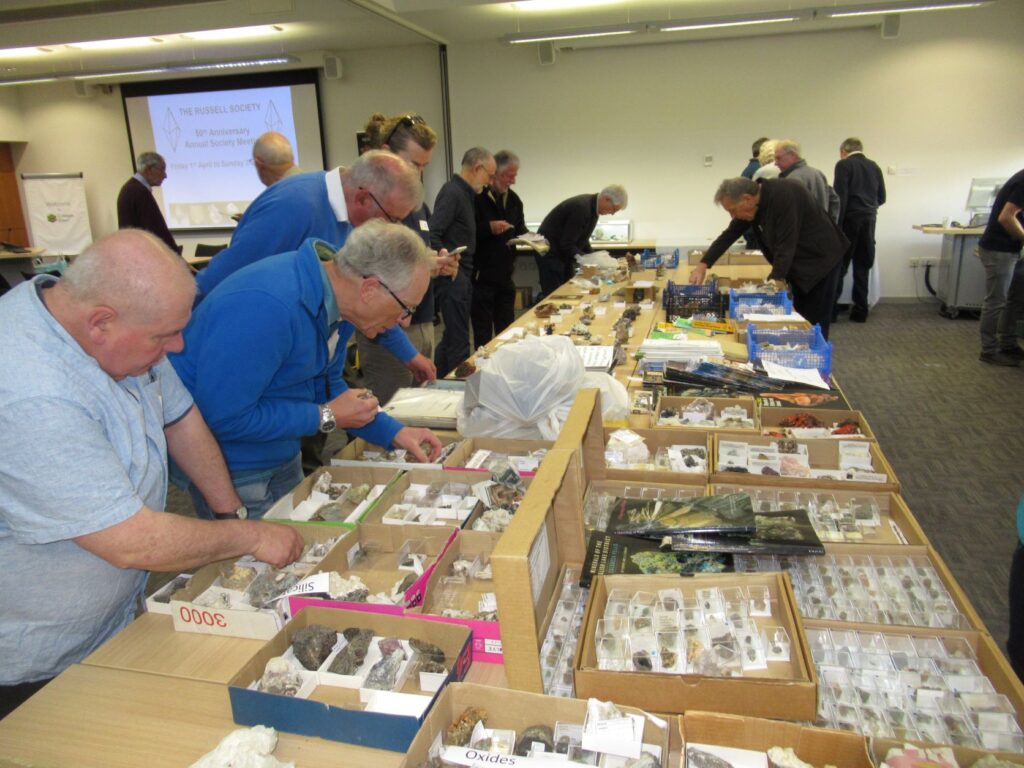

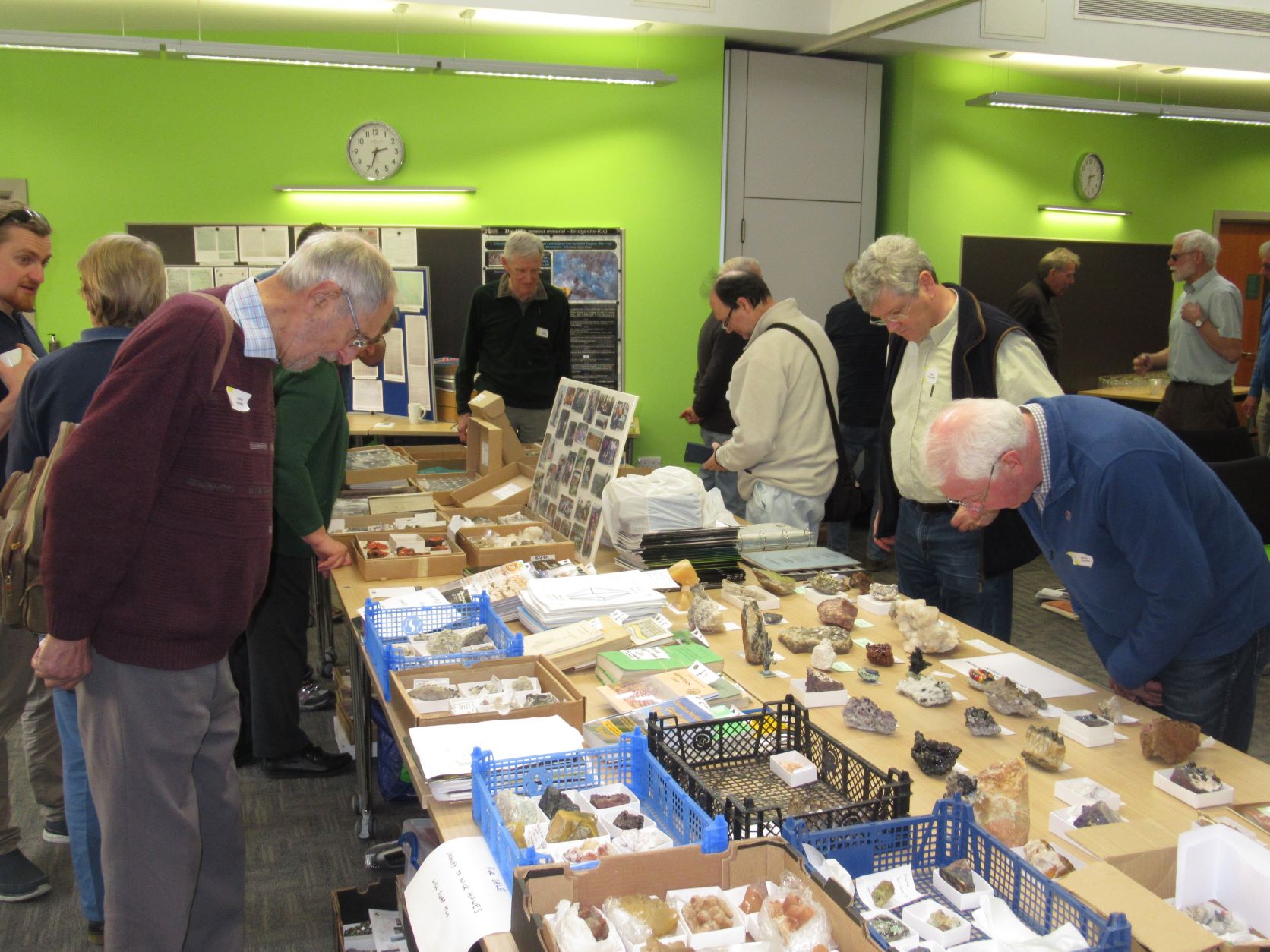
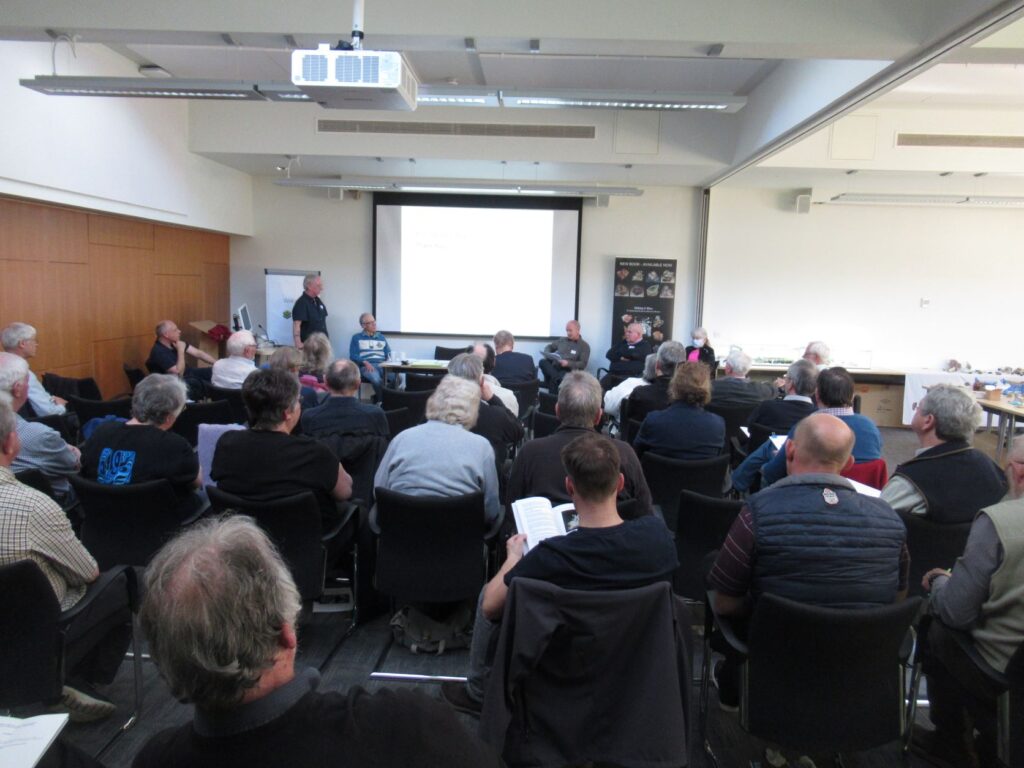
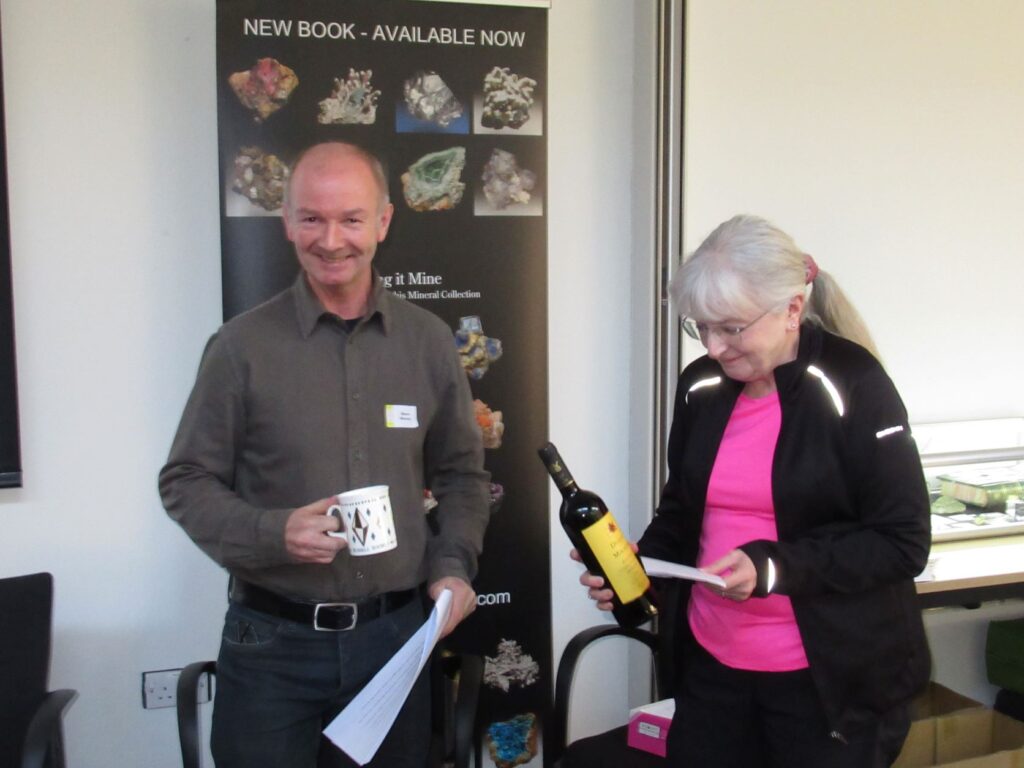
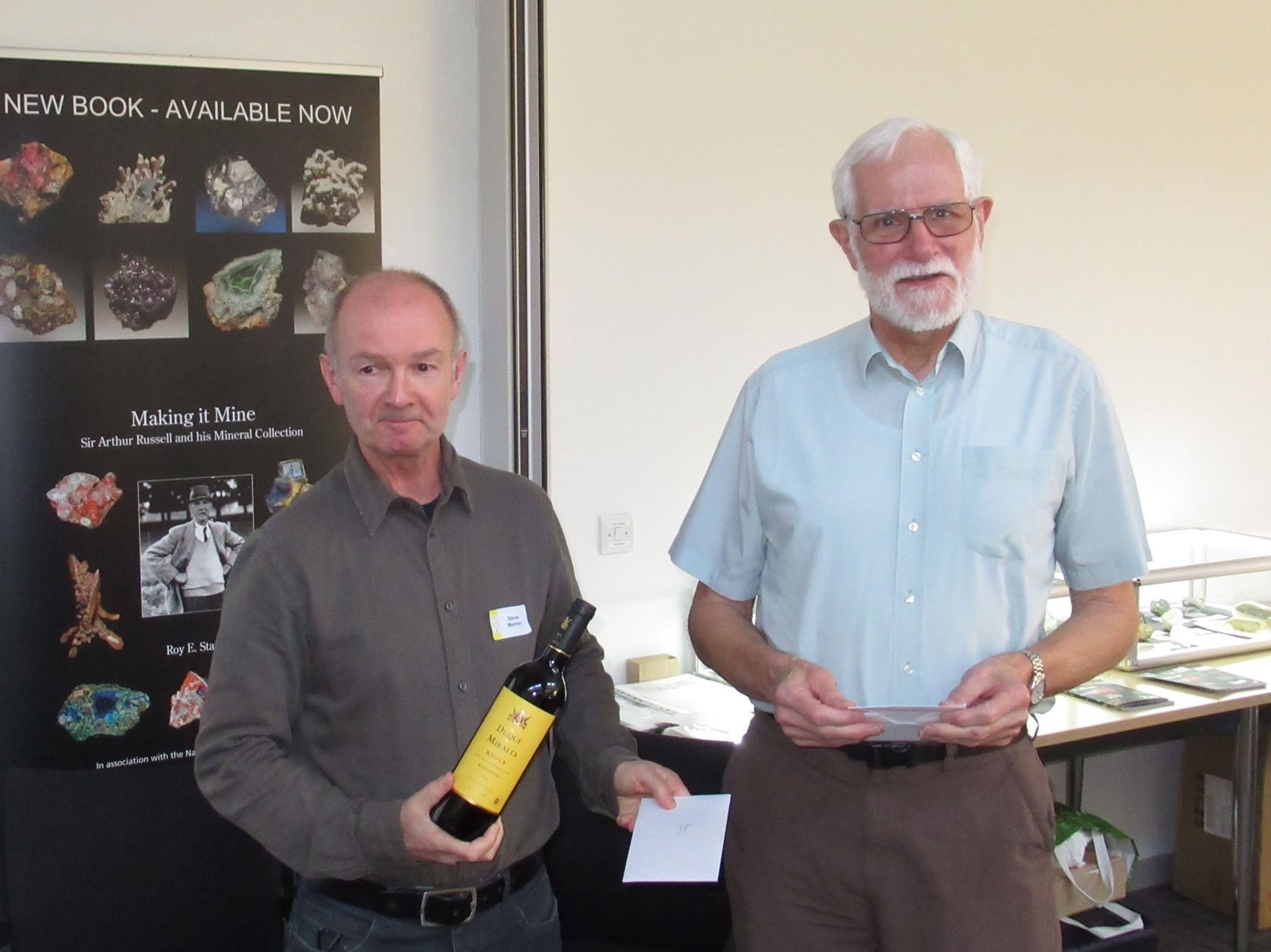
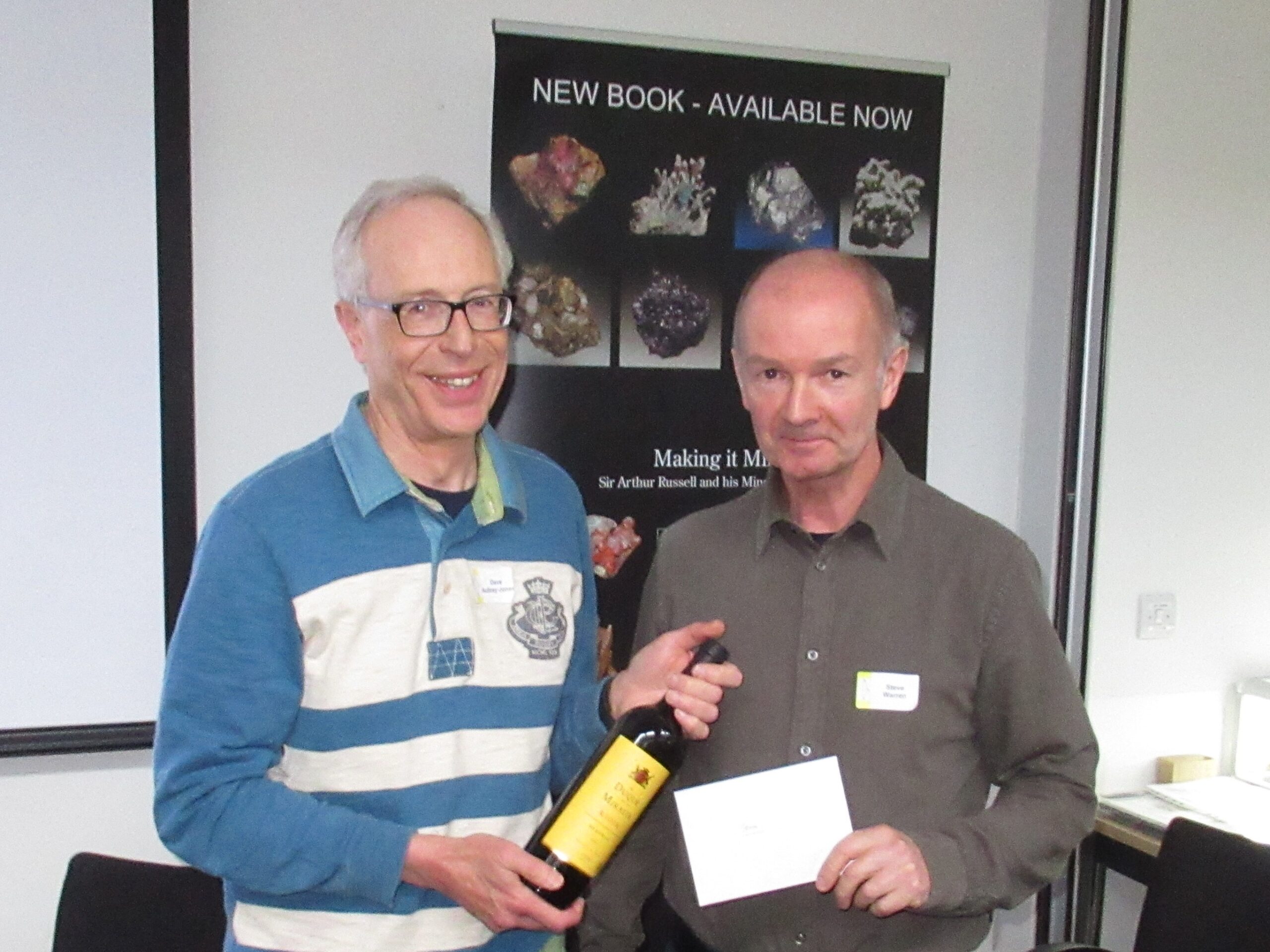
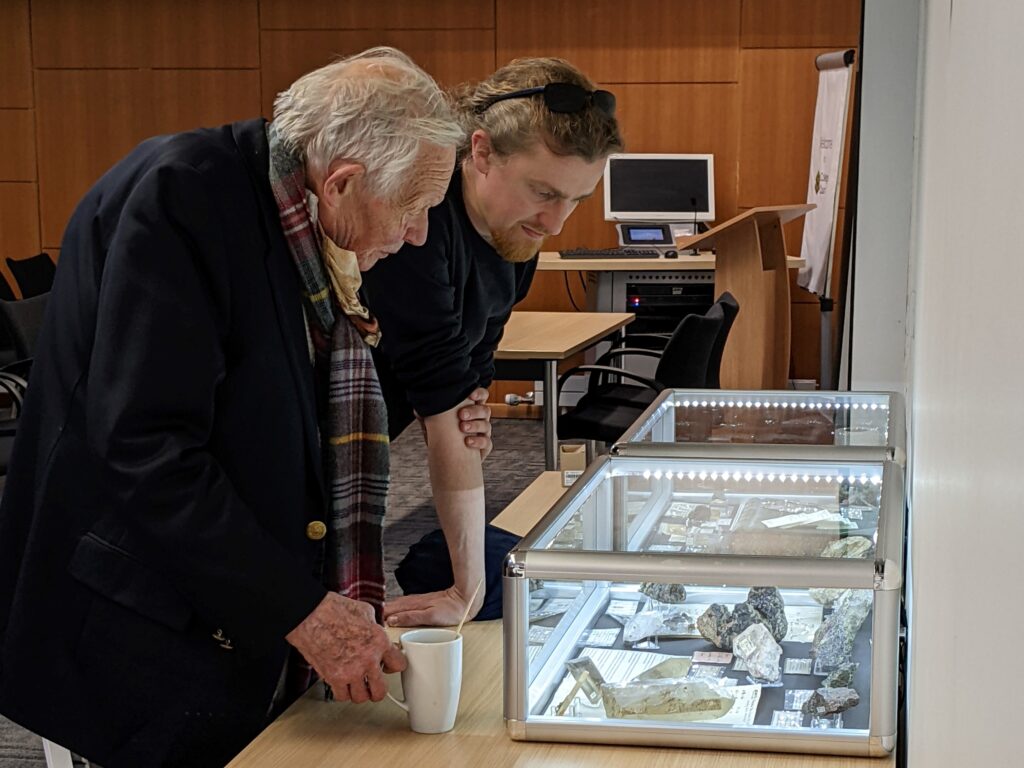
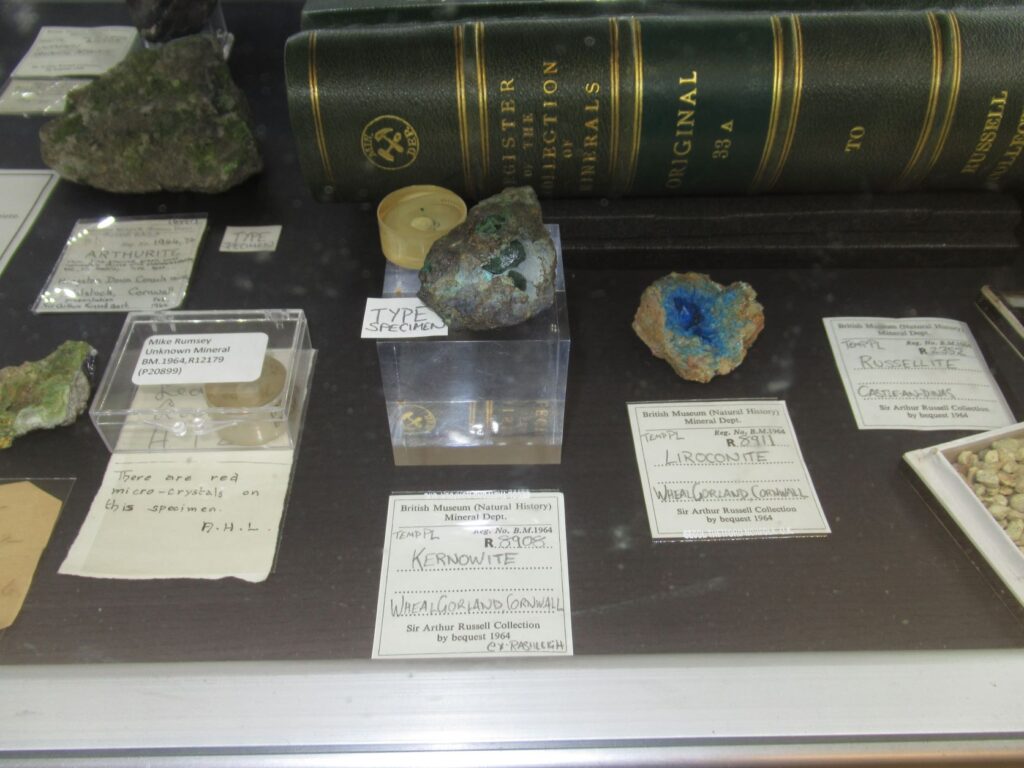
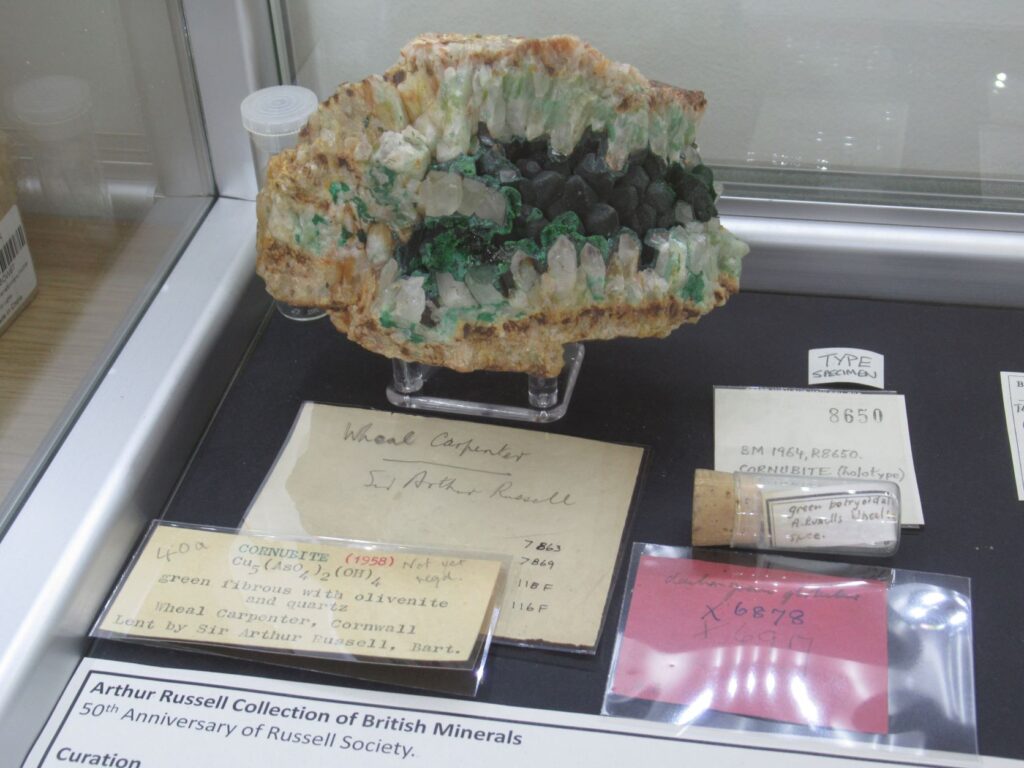
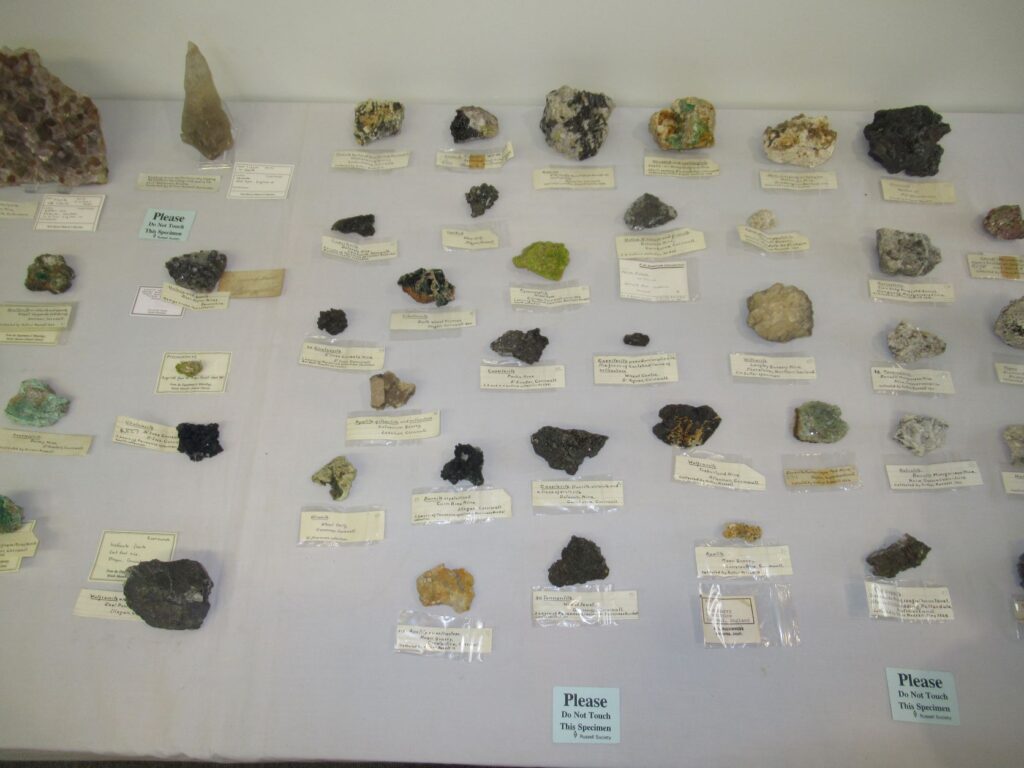
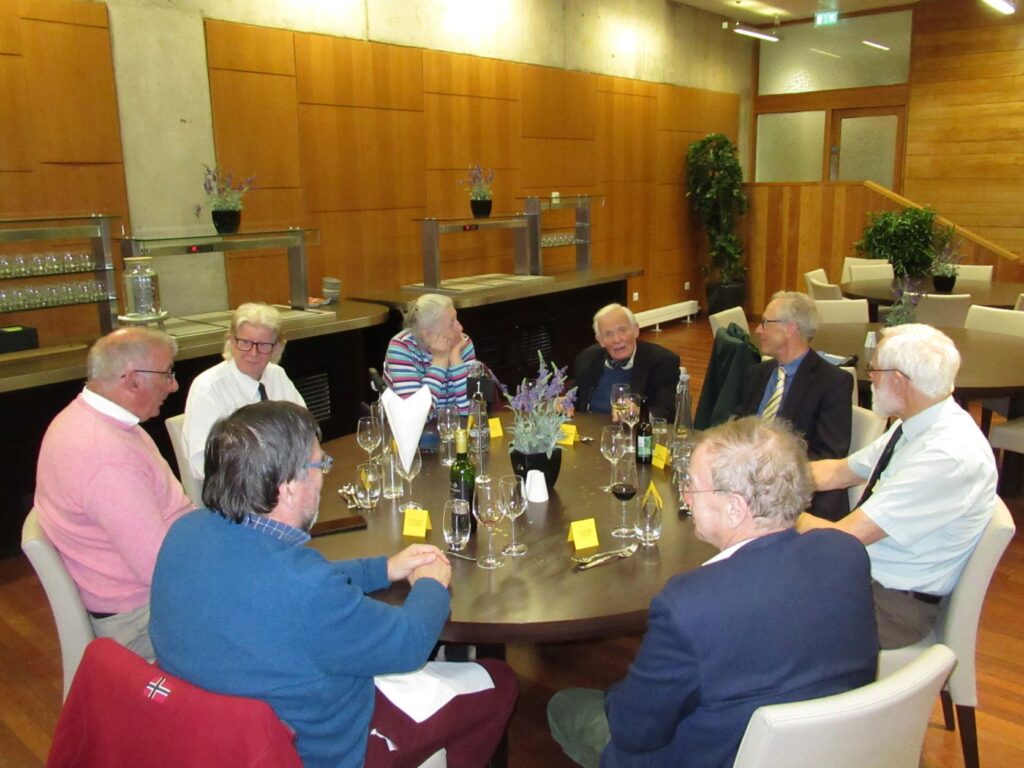
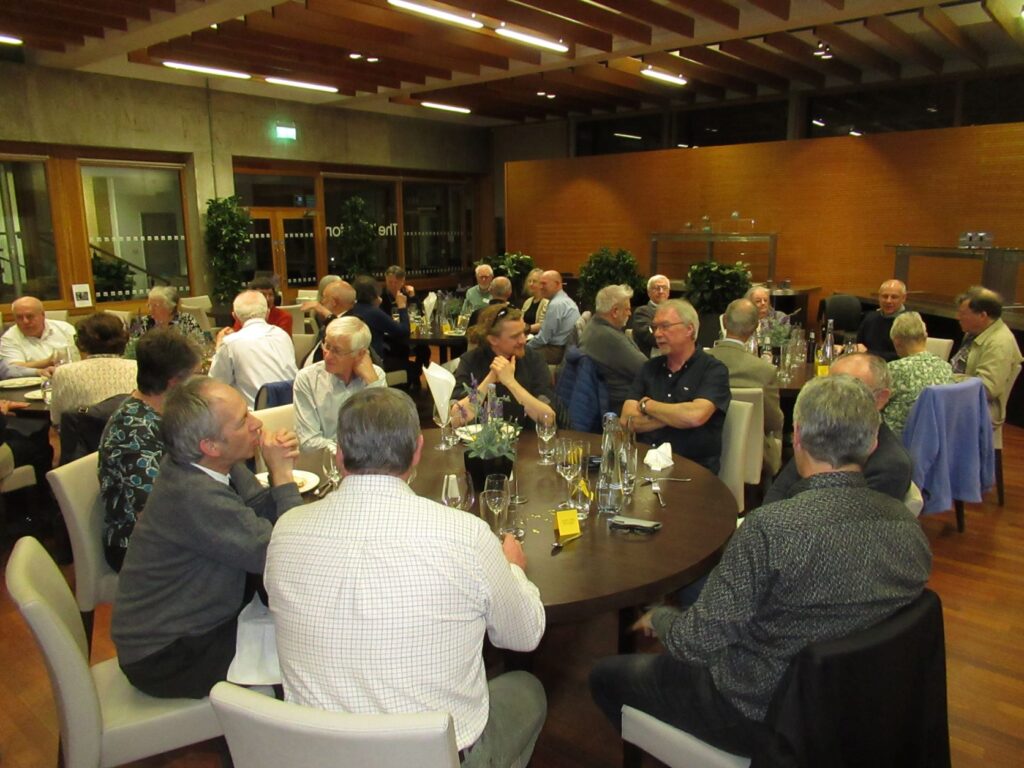
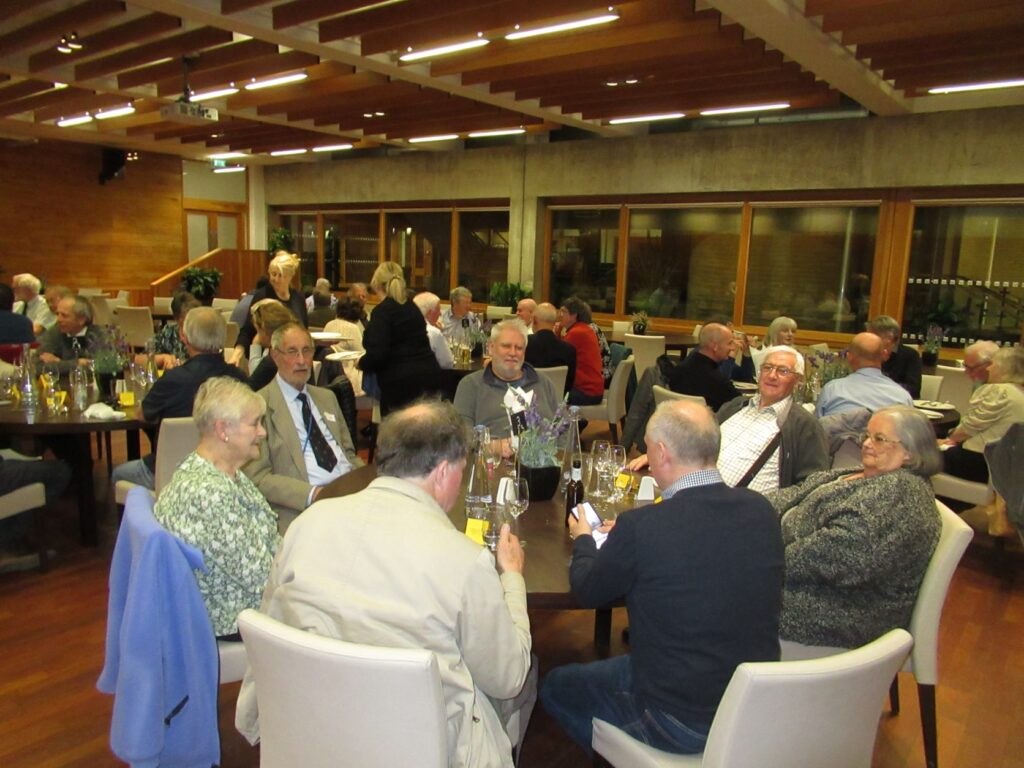
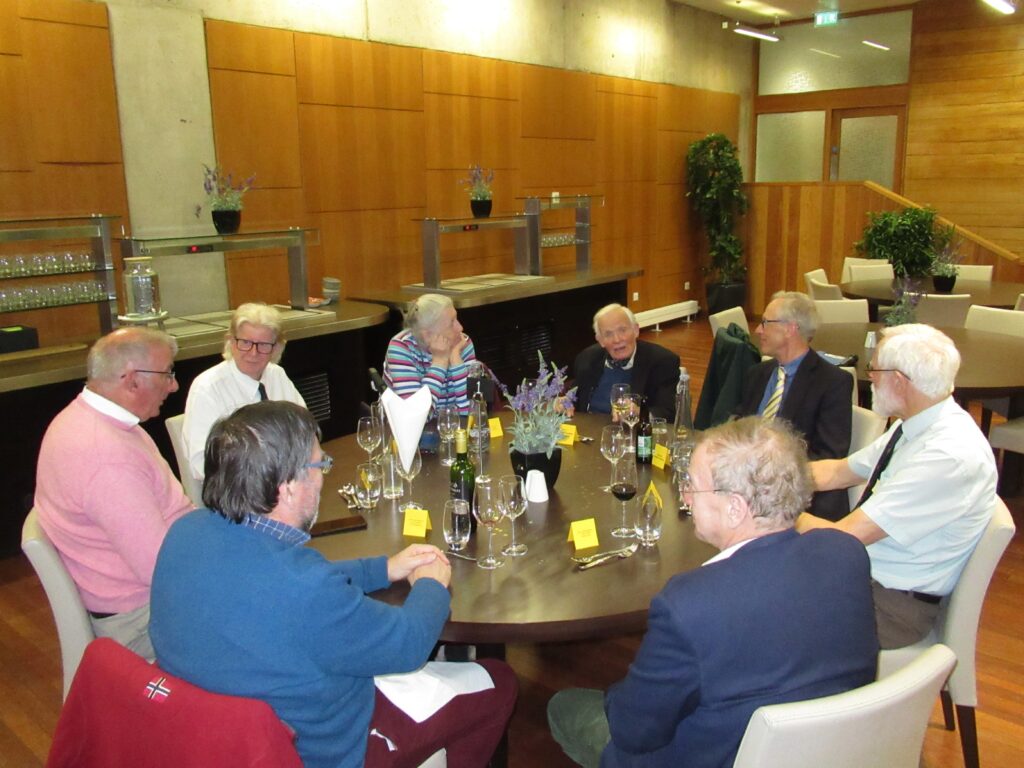
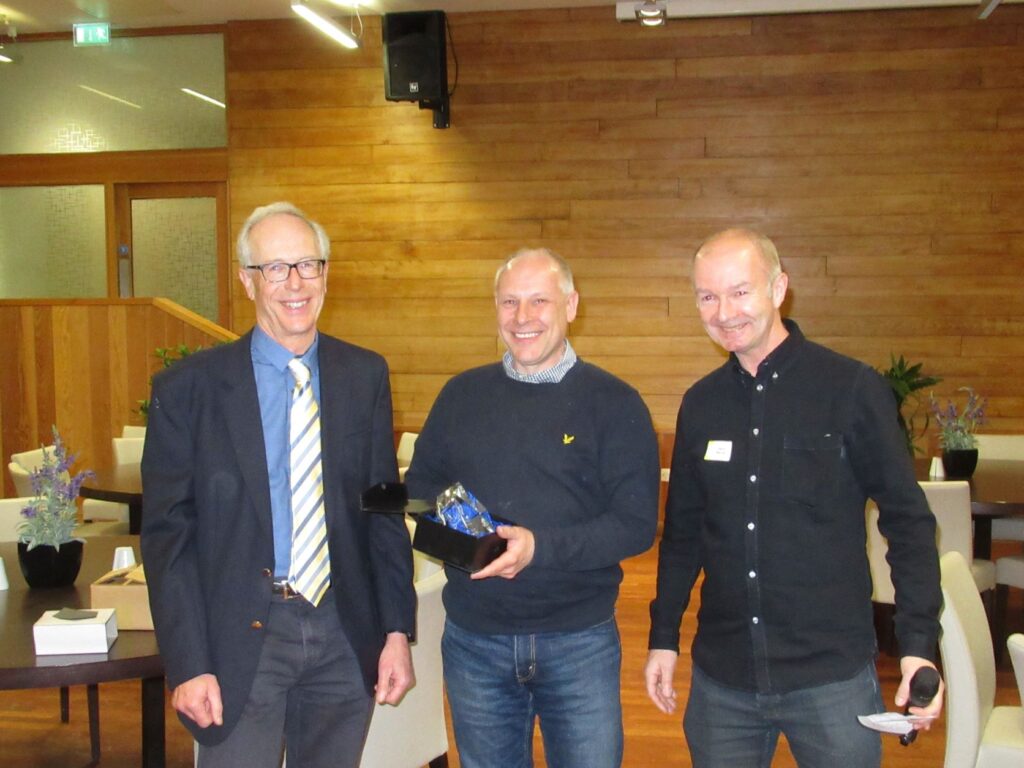
Artificialia: Fake Minerals & Fancy Plinths
If you live in the South West you may be interested in a travelling art exhibition called Artificialia: Fake Minerals & Fancy Plinths by Bridgette Ashton. Three wooden cabinets house what appear to be elaborately presented geological specimens hinting at the desire for discovery and wonder, yet on closer inspection the contents reveal themselves as appropriations of mineral-like objects. Predominantly modelled from ceramics, the sculptures also employ cardboard and plywood with embellishments of beading, flocking and fake gold leaf . Elements of the works directly reference JH Collins’ 1871 ‘Handbook to the Mineralogy of Cornwall and Devon’ in which the author methodically describes and lists a lexicon of rocks and minerals found in the region.
If you cannot get to see the exhibition in person you may like to view the objects on-line
The work is being supported by two events which are are free to attend and can be booked through Eventbrite
- an on-line talk by Tom Cotterell, Senior Curator of Mineralogy at the National Museum Wales, at 4pm on Sunday 13th March tickets
- a trip to Herodsfoot Mine Liskeard on Saturday 19th March tickets
Further information about the aims of the exhibition can be found on the artist’s website
50th Anniversary ASM
At our annual meeting this year, we will be celebrating the 50th Anniversary of the founding of the Society. This will be held the weekend 1st-3rd April in Leicester. Further details and the booking form can be found on the member’s page, but members should already have received these by email. It promises to be a great event so do not delay, bookings must be in by 28th February.
Sad news: Alan Dyer
We are sorry to report that Alan Dyer died on 7th September after a long illness. Alan was President of the Society 2005-2009 and will be remembered particularly for his expertise in the fields of natural and synthetic zeolites. A full tribute will appear in the next newsletter and a brief obituary can be found in Mindat.
New book on the geology of the UK
Individuals with an interest in geology may be interested in a new inexpensive book that explains the principles of geology in in a manner that is simple to follow. The book “Geology for Walkers” by Steve Peacock, is aimed at walkers who wish to understand what they can see, and contains many clear illustrations. An extended extract from the book can be found here.
Russell Medal awards
The Russell Medal is awarded to individuals who have given outstanding service to mineralogy. It is not awarded annually but on an occasional basis. At this year’s ASM, the Medal was awarded to two individuals who are each well known in the field of mineralogy. Since the ASM was virtual, the awards could not be presented at the event but were delivered shortly afterwards.
NEIL HUBBARD
Neil has been a leading figure in The Russell Society since its very early days and has served both on Council and the Central Branch Committee for many years. Through his business “Midland Minerals” Neil has supported establishments who teach geology and mineralogy, and encouraged many collectors who have visited his stand at mineral shows. His visual identification skills are well known- if you want a mineral identified ask Neil! Neil has put his outstanding mineral knowledge to good use by helping the editorial board of the Journal and contributing to many papers. He made the first discovery of bobkingite and has developed specialist knowledge of the mineralogy of Dolyhir quarry.
RICHARD BRAITHWAITE
Before he retired Richard was professor in the Department of Chemistry at the University of Manchester Institute of Science and Technology, in Manchester, England. He has had an interest in mineralogy all his life and passed on his enthusiasm to many others, taking students on trips to old mine sites and acting as mentor to other mineralogists in the Manchester area. Richard has published many papers on mineralogy and co-authored descriptions of the new species herbertsmithite and zincolibethenite. He has been a valued member of the editorial board of Journal of The Russell Society. The copper secondary mineral braithwaiteite, was named in his honour.
